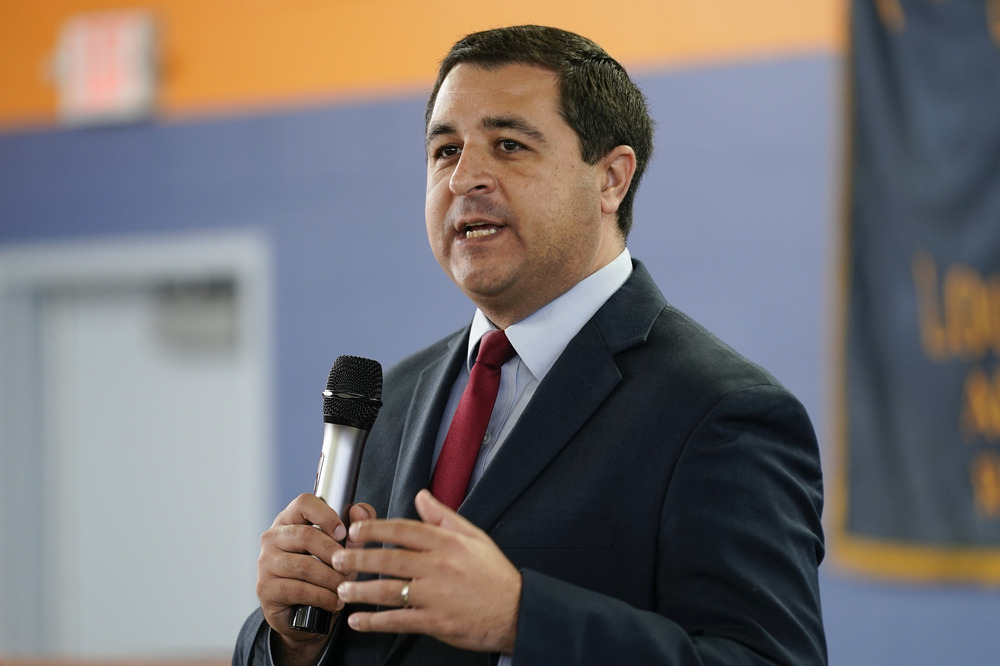
Wisconsin Attorney General Josh Kaul speaks at a campaign stop, Oct. 27, 2022, in Milwaukee. (AP/Morry Gash, File)
A federal judge has denied Wisconsin Attorney General Josh Kaul's request to review the Milwaukee Archdiocese's sealed bankruptcy records as part of his investigation into clergy sex abuse.
U.S. District Judge G. Michael Halfenger denied Kaul's request on Monday, the Milwaukee Journal Sentinel reported Thursday. Halfenger called the scope of Kaul's request “staggering” even before considering what it would take to provide abuse survivors notice of the request.
He added that Kaul did not give him any compelling reason to grant the request, calling it a “massive fishing expedition.”
The archdiocese filed for bankruptcy protection in 2011 to address unresolved claims by abuse survivors. The case ended with a settlement in 2016 that called for the archdiocese to pay hundreds of survivors $21 million. Hundreds of their claims remain under seal.
Kaul, a Democrat, launched his investigation in April 2021, saying he wanted to develop a full picture of clergy sexual abuse over the decades.
Advertisement
The attorney general filed a request in federal court in August 2023 seeking access to the archdiocese's bankruptcy records that were sealed nearly a decade ago. The records were sealed as part of a settlement between the archdiocese and hundreds of sexual abuse survivors. The archdiocese agreed to pay them $21 million in compensation, ending a long-running case in bankruptcy court.
Kaul requested that a judge grant state Justice Department investigators a confidential review of sealed claims by survivors, objections to those claims, briefings on the objections and rulings on the objections, the Milwaukee Journal Sentinel reported.
The archdiocese’s attorney, Frank LoCoco, said in a statement that allowing Kaul to review the documents would have been “devastating” to abuse survivors who see the case as closed and want their claims kept under seal.
State Justice Department spokesperson Gillian Drummond said the judge’s ruling underscores how important it is for clergy abuse victims to report incidents to the agency directly.







